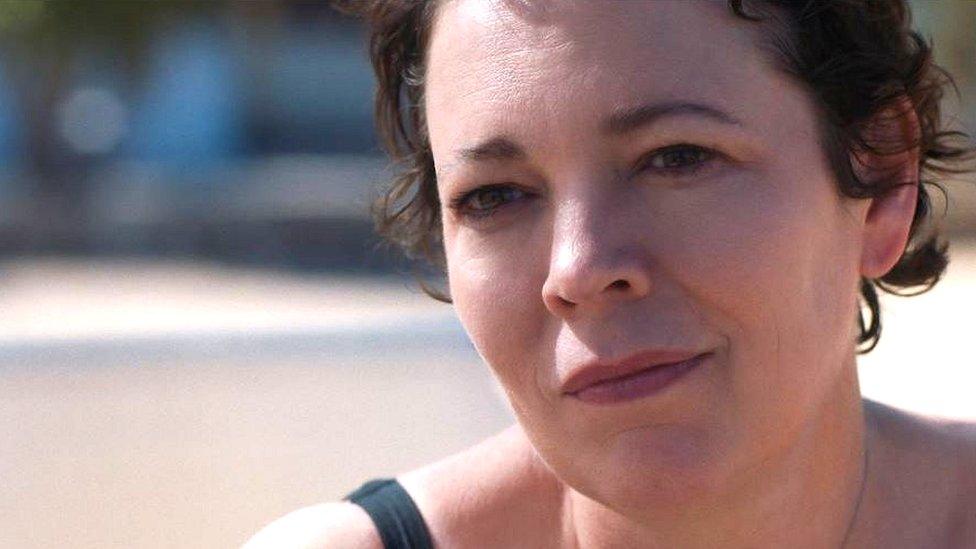Wicked Little Letters: Olivia Colman on why abusive notes were original trolling
- Published
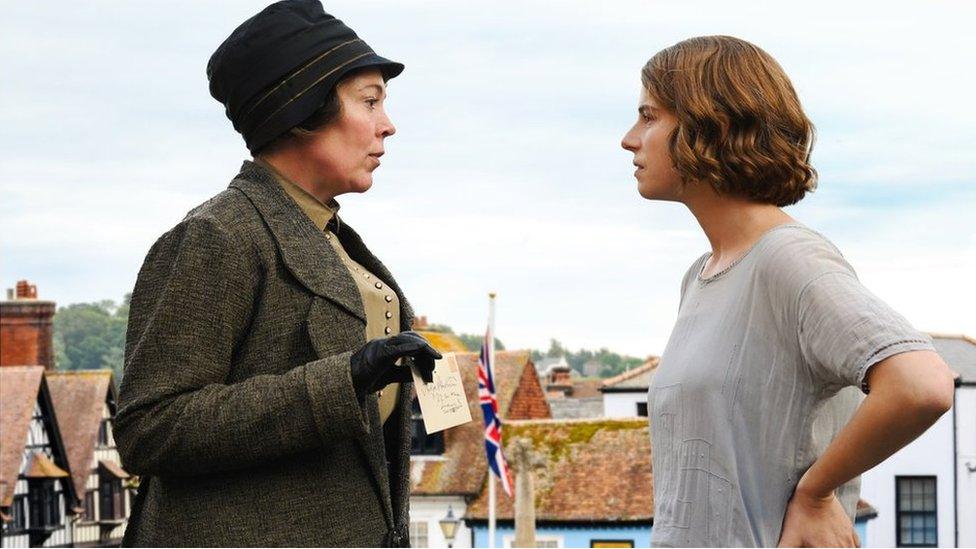
Olivia Colman and Jessie Buckley previously acted together in The Lost Daughter in 2021
In the spring of 1920, the House of Commons scheduled a debate on one of the most pressing issues facing the country at that time - who was behind the slew of profane letters being sent to well respected members of a community.
For months, Littlehampton, a small seaside town in Sussex, had been alight with rumours over who was sending sweary and scandalous letters. A well-respected, pillar-of-the-community Christian, Edith Swan pointed the finger at Irish foul-mouthed neighbour Rose Gooding.
The showdown between the two neighbours is the basis for period comedy drama Wicked Little Letters, starring Olivia Colman as Edith and Jessie Buckley as Rose.
"Parliament absolutely debated it and it was covered by all the broadsheets at the time," Colman tells the BBC. "The fact the nation was gripped by this I found to be hilarious."
Colman's co-star Buckley says the letters "sent the whole country into a frenzy" and was "the sort of sensationalist trolling you would expect in the modern day".
The letters that Edith received were obscene, by both 1920s and modern day standards.
With insults which included suggesting the cakes someone had made had been excreted by a sheep (we couldn't possibly repeat the exact phrasing here), the actors said it was "such an enjoyment" to swear so freely.
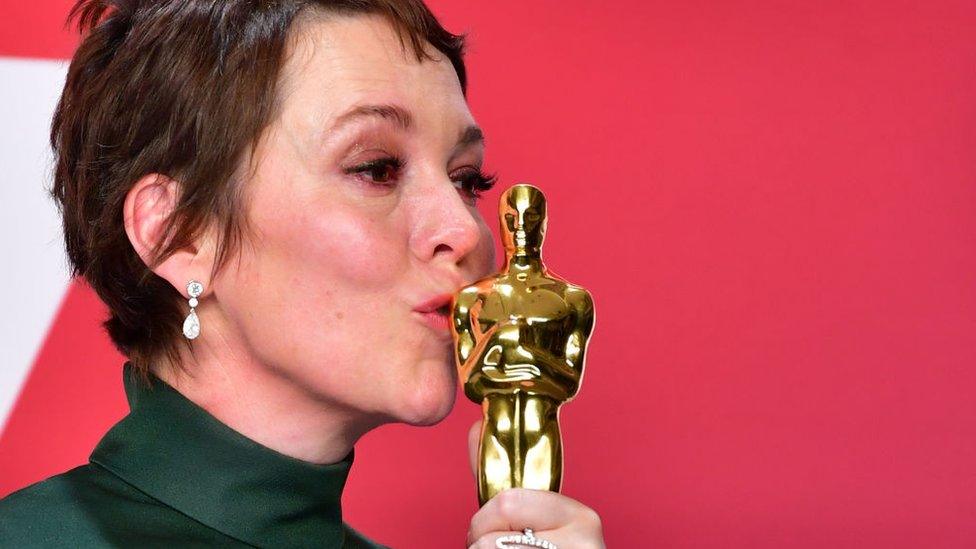
Colman won an Oscar in 2019 for her performance in The Favourite
"I swear, and if people's sphincters tighten I just think I'm not killing or hurting anyone, so I don't think that's really a problem," says Colman.
"Some people walked out of the cinema watching our film and I just think they need to get over themselves. It's not a sign of a diminished vocabulary, it's fun, it's just an enjoyment and I see it as a seasoning," she laughs.
"The ones who swear the least are the ones who need a good swear," adds Buckley.
Critics have so far given the film mixed reviews. In a three-star review, the Evening Standard's Nick Huwells , external said the lead actors "put in less than their usual stellar work".
He added that the swearing was only "ever so slightly hilarious" and that "initial tickle of naughtiness rapidly fades".
A three-star review from Empire, external said the film was "overly reliant" on the sweary letters "with most raising titters rather than laughs".
In a scathing one-star review, the Guardian's Benjamin Lee said, external Wicked Little Letters was "an embarrassingly unfunny misfire".
James Mottram of the Radio Times praised the cast,, external who he said had "to work overtime to deal with the script's patchy nature".
His three-star review particularly highlighted Anjana Vasan for her portrayal of police officer Gladys Moss "who delivers one of the film's better performances, both comic and earnest".
Colman is best known for TV shows Broadchurch and Peep Show, and films including The Father, Empire of Light and The Favourite, which won her an Oscar for best actress.
She and Buckley last worked together on Netflix's 2021 movie The Lost Daughter. Buckley's other film credits include Women Talking, Fingernails and Wild Rose.
'Hate can destroy lives'
During the case of the Littlehampton libels, one judge in the 1923 court case based his argument on the fact a respectable woman would never swear.
Sending offensive letters resulted in prison sentences for the culprit, but 100 years later spreading anonymous hate has become commonplace.
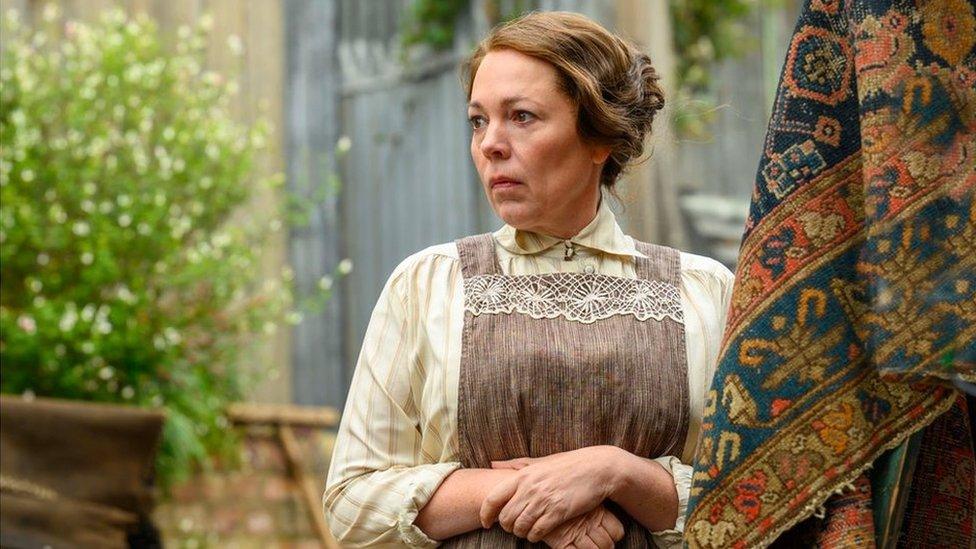
Olivia Colman's character is a pious woman who brands herself as a pillar of the Christian community
"Everybody's cruel to everybody else online and that's awful," reflects Colman. "I would love to go back to the days where it's not OK.
"It's a despicable thing to do to someone and we've seen the terrible things that have happened to people who can't cope with the fact that someone they don't know is so unkind about them."
The 50-year-old said she wants greater measures to be implemented to stop people making anonymous online accounts.
She continues: "I know there's another argument that there are parts of the world where you can't say what you need to say if you are traceable, but if you're just going to be unkind about a fellow human, don't. It shouldn't be allowed."
The film's writer, comedian Jonny Sweet, adds that he hopes there will be "greater regulation because anonymous hate really destroys people's lives and can be a real nightmare".
"That's what this story is about - it shows that you can write something anonymously and say some wretched old stuff and think you'll get away with it," he says.
Perhaps the culprit would have got away with it if it was not for one woman, police officer Gladys Moss.
Sussex's first female officer, Moss served in the force between 1919 and 1941 and was an integral part in solving the Littlehampton libel letter case.
"Gladys is so committed to her work and finding the truth and was not going to compromise and she wins in the face of everyone doubting her," says Irish actor Buckley
But despite her brilliant efforts, historian Emily Cockayne tells the BBC that Gladys received no recognition for being "fundamental and instrumental in the case".
Instead, Cockayne explains, she had to "fight to keep her job as the police were keen on ejecting many of the women in the force who had joined during the war".
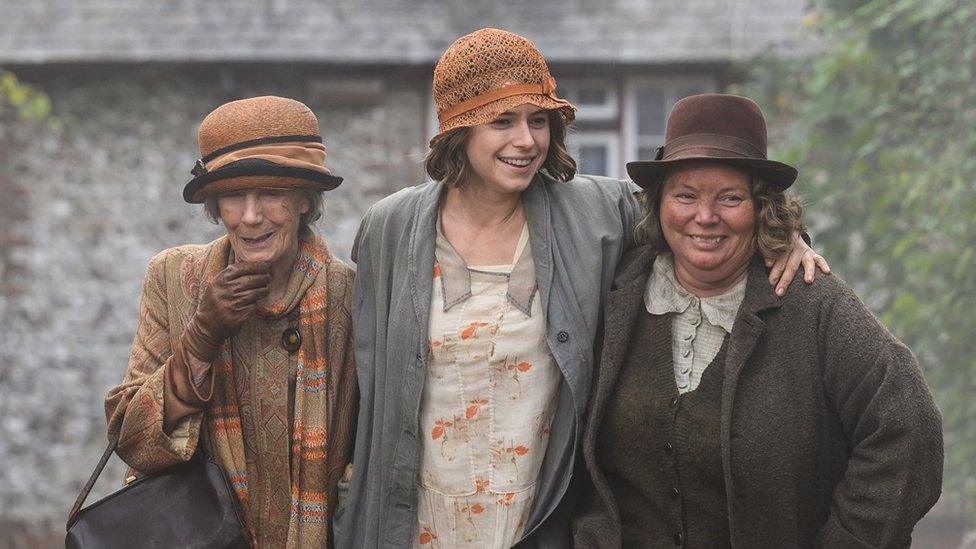
The film shows how an unlikely group of women came together to help justice prevail
Alongside Sherlock-like sleuth Gladys, a team of unlikely women who are undermined or overlooked by society work together to bring about justice for the community.
"There's a lot more to this story than what meets the eye," Buckley explains. "These are ordinary women with amazing minds, who, if given half a chance, are bloody great."
Although girl power is a strong force in the film, Cockayne said that in reality "women wouldn't have had the power to put together a plan in the way they do in the film".
"Our fascination with women who break social convention is nothing new - from the first witchcraft trials in the 15th Century to a country that was stunned by a woman using foul language in a letter, behaviour that is not in line with society's expectations has always had the power to shock."
And, watching Colman and Buckley scream hilarious profanities and wickedly scandalous lines at each other will never not be brilliantly shocking.
Related topics
- Published21 March 2023
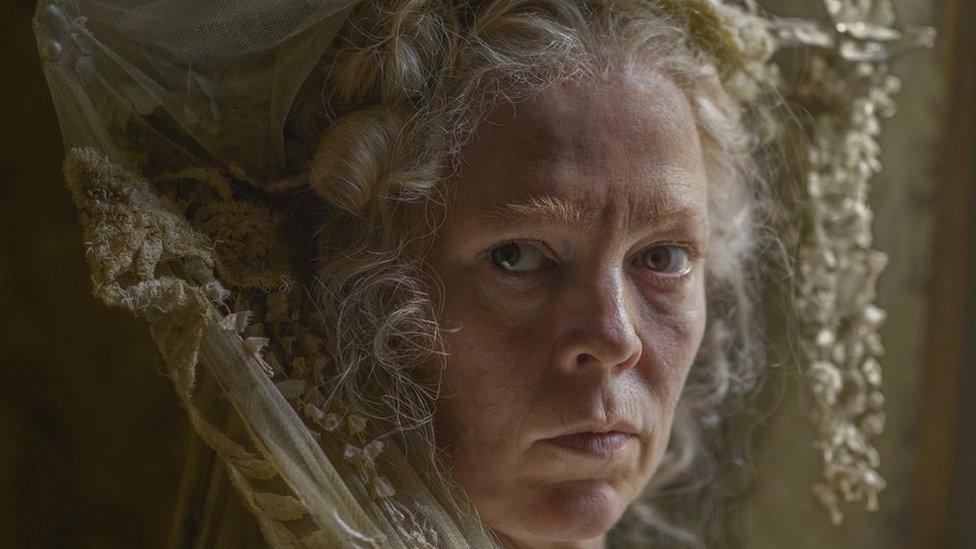
- Published16 December 2021
